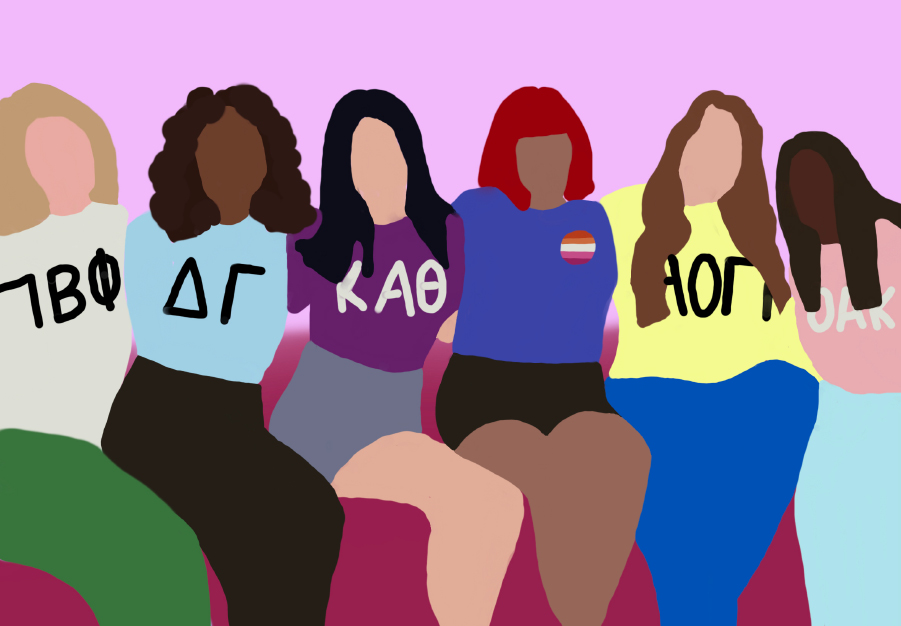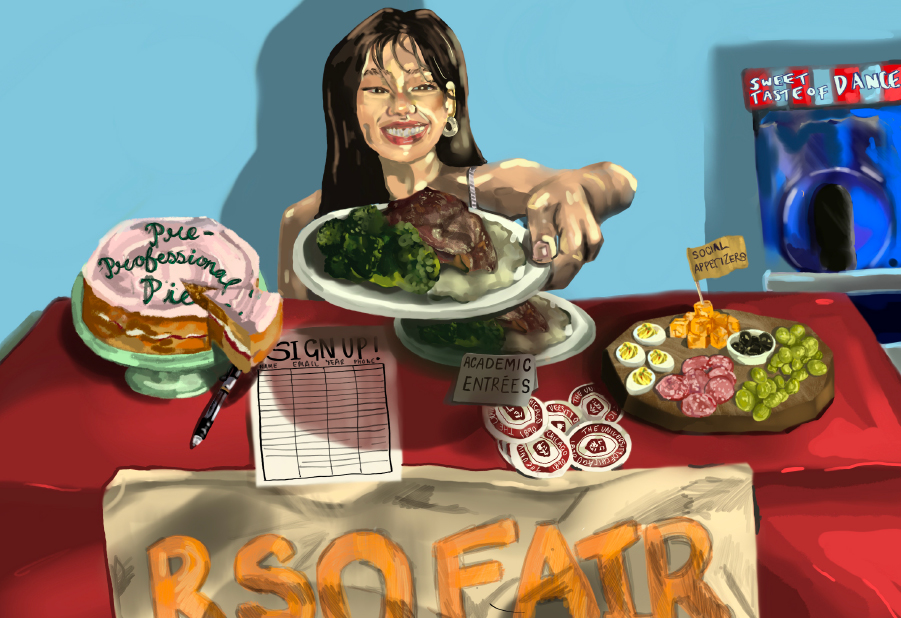Pumpkin spice. Thanksgiving stuffing. Campus North’s wind tunnel.
It’s that time of year when Darwinian instincts take over, and couples stumble into relationships, seeking body heat to survive the Chicago tundra: cuffing season. The Maroon recently surveyed the student body and found that 86 percent of respondents would like to be in a relationship, yet only 33 percent are in one. The question then arises: What causes this disparity? Is UChicago too hostile of an environment for relationships to grow?
On the surface, there are many benefits to dating in college. A significant other can provide an emotional safety net to tackle the more daunting challenges of our undergrad years. Plus, living on a relatively small campus, potential partners are always close by. If your significant other lives merely an elevator ride away, it is much easier to be with them.
On the other hand, the start of college presents several unfamiliar situations to first-years. This state of flux and the ensuing emotional instability provides a poor foundation for a budding relationship. Realistically speaking, is there room to start a mature, long-term relationship between the blackouts and breakdowns so common at the beginning of college? A healthy relationship requires an emotional maturity that many first-years have understandably not developed yet.
Thinking about it in economic terms, students should consider the opportunity cost of jumping into a relationship at the start of college. There’s obviously the immediate benefit of emotional support from a significant other. However, time spent with a significant other is time spent away from cultivating meaningful friendships. Developing such friendships is one of the most important aspects of college. A relationship can actually have the opposite effect, making people feel isolated from their peers and friends. Was the Netflix and chill actually worth missing out on that party?
Because there are so many obstacles to starting a true relationship, hookup culture is understandably common on our campus. The anonymity of dimly lit parties and apps like Tinder only make it easier to find a potential hookup. Students are able to go out, spend hours toiling away on a P-set, and meet up with friends, while still finding physical intimacy. The social and academic opportunity cost of hooking up is arguably a lot less than that of dating. Hooking up takes away a lot of the emotional responsibility associated with dating. It’s no wonder this culture is appealing to overcommitted UChicago students.
College comes with independence unlike anything students have experienced before. While this independence is empowering, it creates a breeding ground for loneliness. People become especially aware of this loneliness as winter starts to rear its head. Seeking intimacy is a natural response to it. Hookup culture is our generation’s response to battling this sense of loneliness.
Previous generations aimed to establish emotional intimacy before even approaching physical intimacy. Many of today’s college students have reversed this by making it the norm to explore physical intimacy before considering emotional elements. Despite criticism from older generations, this isn’t necessarily a bad thing. We find emotional intimacy through the friendships we develop. These relationships are more likely to last the test of your college years than romantic ones. Relying on friends ensures that your source of emotional intimacy is consistent.
While being in a relationship can feel like an extra commitment that inhibits partners, hookup culture provides a liberating gray space. A lack of labels and rules allows partners to put themselves first. People who are hooking up can prioritize their friendships without worrying about neglecting a relationship. We adapted to put our needs first, to redefine the value of “self” in the common vernacular. And ultimately, it’s liberating to not feel obligated to pursue a romantic relationship—prioritizing your own needs, especially at the beginning of college, is a healthy alternative.
Brinda Rao is a first-year in the College.







